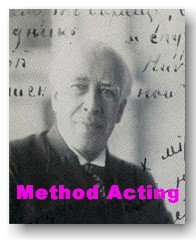[ advertising space : webmaster ]
Enter the name of a movie, TV show, or person and then click "Go" to get more information about it/them from imdb.com.


FILM DIRECTING online; if in class, must subscribe!

Films&Movies 2003 *
Directors Forum: if in class, I recommend to subscribe!
KEY TERMS: Glossary
DVD: Drama & Art House, Studio Specials & Classics, New & Future Releases, Cult Movies
filmmaking books

film books

Method for Directors?

ShowCases: 3 Sisters, Mikado, 12th Night, Hamlet, The Importance of Being Earnest, Dangerous Liaisons, Don Juan
prof. Anatoly Antohin Theatre UAF AK 99775 USA
PROCESS & PRODUCT
Director's Role and Responsibilities
Director's Decisions
Case Studies: Great films & Directors
Production is the killer!

* see T-blog and VT blog ! My places to watch for directing -- Total Director, stagematrix.com, meyerhold.us + teatr.us for LUL Theatre & stagematrix group [wiki]
Producing: To ensure an organized shoot, students must guide their film through a comprehensive pre-production period. Producing class takes them through the entire process of pre-production, including scouting and securing of locations and securing permits and cast. Using their script breakdowns, students learn how to plan and keep to a schedule and how to budget their productions. Students use their own finished scripts in class as they learn how to take advantage of budgeting and scheduling forms and methods. (NY Film Academy)
In the middle of everything... director!
 * Classes * Virtual Theatre * Bookmark vTheatre! Mailing List & News -- subscribe yourself * The Book of Spectator *
* Classes * Virtual Theatre * Bookmark vTheatre! Mailing List & News -- subscribe yourself * The Book of Spectator * 

